Brilliant Tips About Is SCADA Hard To Learn

SCADA System Explained The Heart Of Industrial Automation
Demystifying SCADA
1. What Exactly is SCADA, Anyway?
So, you've heard whispers of SCADA (Supervisory Control and Data Acquisition) systems. Sounds a bit like something out of a sci-fi movie, doesnt it? But in reality, SCADA systems are the unsung heroes behind a lot of our everyday infrastructure. Think power grids, water treatment plants, oil pipelines — all those complex processes happening behind the scenes? SCADA is often the wizard pulling the strings (or, you know, sending the signals). It's basically a control system architecture that uses computers, networked data communications and graphical user interfaces for high-level process supervisory management.
Imagine a central control room where operators can monitor and control thousands of devices scattered across a large geographical area. SCADA allows them to collect data from remote sensors, analyze it, and then send commands back to control things like pumps, valves, and motors. Its like having a super-powered remote control for critical infrastructure. These systems are essential for improving efficiency, maintaining safety, and ensuring reliable operation.
Without SCADA, we'd be stuck manually monitoring and controlling these complex systems, which would be incredibly inefficient and prone to human error. SCADA brings everything to one central location, providing real-time data and control capabilities. SCADA helps to avoid potential dangers and improve decision-making processes by offering better transparency across operations.
But the big question remains: is learning all of this complicated stuff really that challenging? Well, lets dive into it!
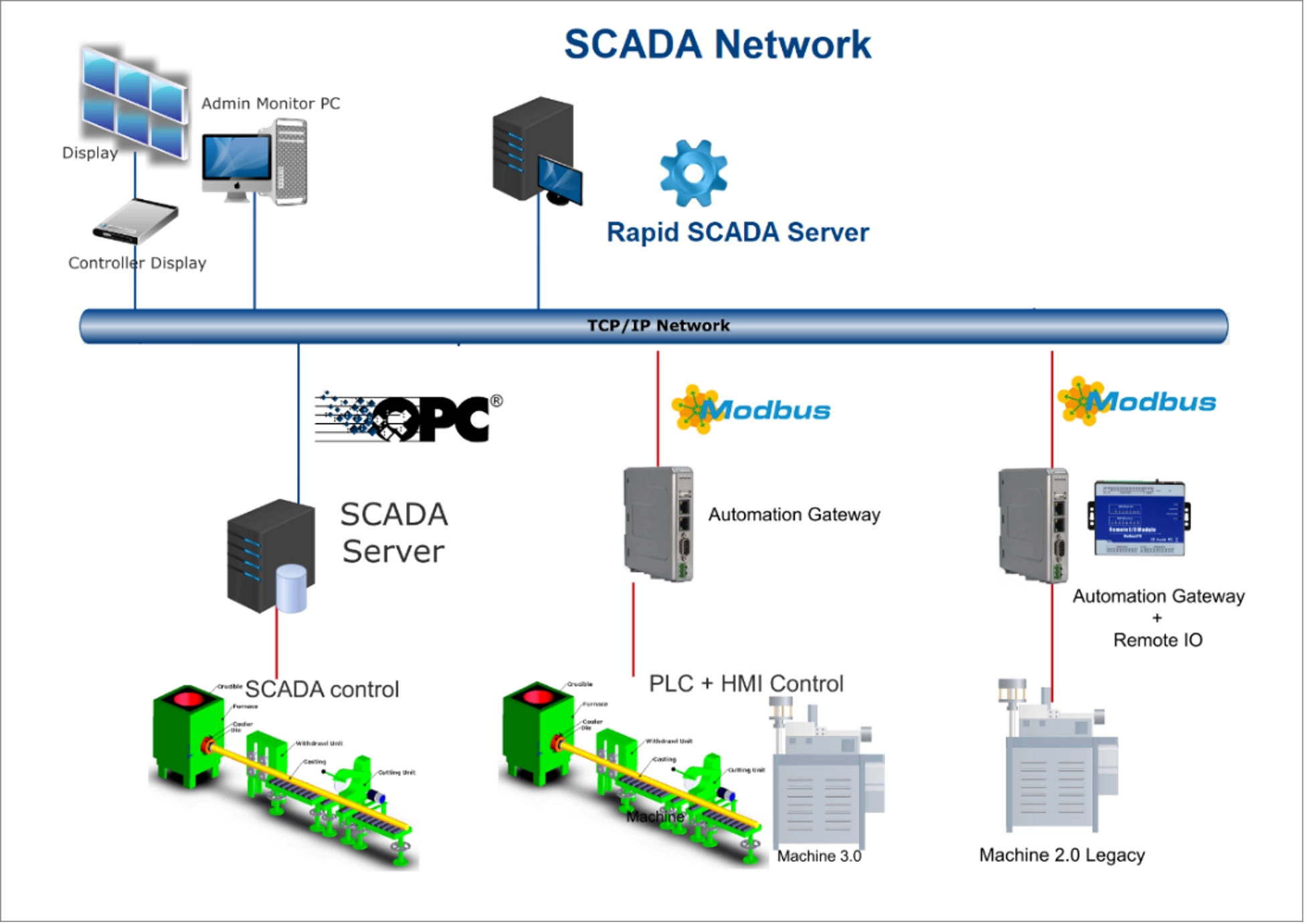
The Perceived Difficulty
2. SCADA's Reputation for Complexity
Okay, let's be honest. SCADA does have a reputation for being a bit of a beast to learn. There are several reasons for this. First, it's a multidisciplinary field. You need a good grasp of networking, industrial automation, process control, and even some programming. That's a lot to wrap your head around. It's not just one skill; it's a collection of them.
Second, SCADA systems can be incredibly complex. They often involve a mix of hardware and software from different vendors, all working together (hopefully!) seamlessly. Figuring out how all these pieces fit together can be a real puzzle. Plus, the configurations are unique to each specific application, meaning the learning curve may be steep at first.
Third, security is a major concern. SCADA systems are often critical infrastructure, making them attractive targets for cyberattacks. Learning how to secure these systems requires specialized knowledge and a deep understanding of potential vulnerabilities. Staying updated on the latest security threats and best practices is a constant challenge.
But dont let all of that scare you off! Like any complex subject, breaking it down into smaller, manageable parts can make the process much less daunting. The important thing is to have a good learning plan and the right resources.
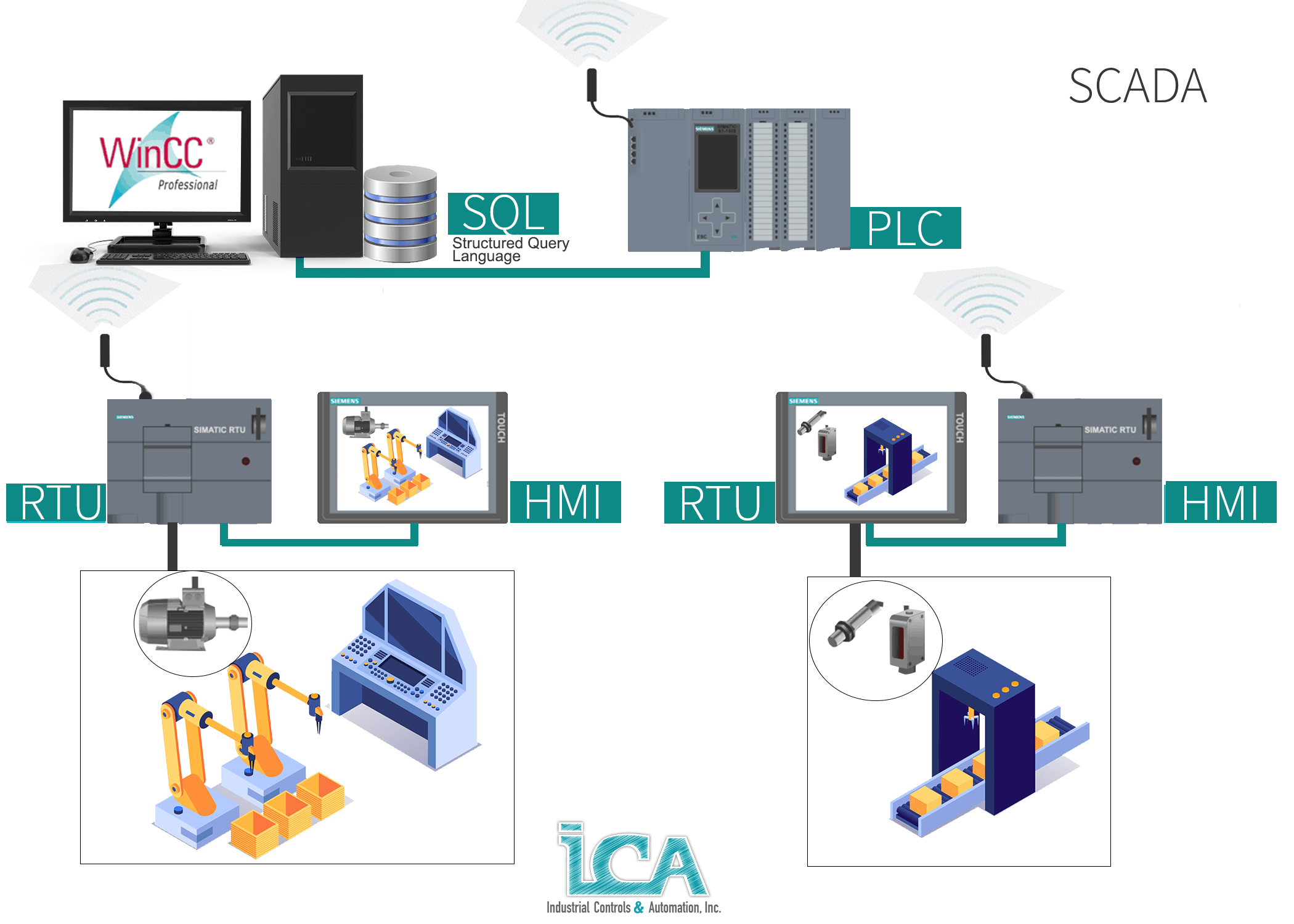
What Is Scada System Basics Of Instrumentationt Vrogue.co
Breaking Down the Learning Curve
3. Key Areas of SCADA Knowledge
So, how do you tackle this SCADA learning curve? Here's a breakdown of the key areas you'll need to focus on. First, understand the fundamentals of industrial automation. This includes things like Programmable Logic Controllers (PLCs), Human-Machine Interfaces (HMIs), and communication protocols like Modbus and Profibus. Getting a solid grasp of these basics is crucial.
Next, dive into networking. You'll need to understand how SCADA devices communicate with each other, and with the central SCADA server. This means learning about TCP/IP, Ethernet, and other networking protocols. Understanding network security is crucial because these devices are frequently networked.
Then, focus on SCADA software. There are many different SCADA software packages available, each with its own strengths and weaknesses. Some popular options include Wonderware, Siemens WinCC, and Ignition. Experiment with a few different packages to find one that suits your needs. Learning the basics of one will help you to understand the basics of all.
Finally, dont forget about cybersecurity. Learn about common SCADA vulnerabilities and how to protect against them. This includes things like firewalls, intrusion detection systems, and secure coding practices. This is becoming increasingly vital as systems become more connected.
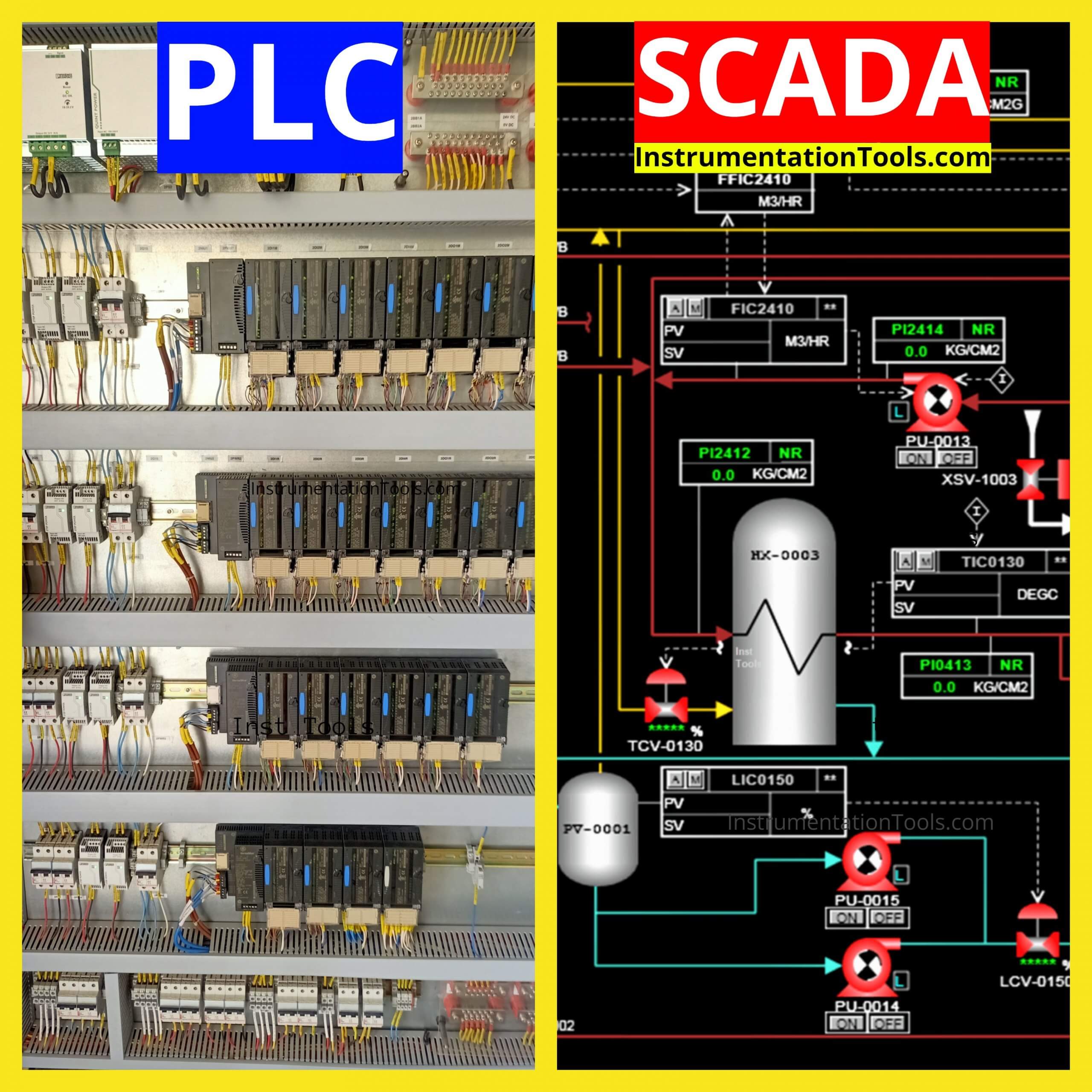
Scada Wiring
Making it Easier
4. Where to Find Help and Guidance
Okay, so where do you start on your SCADA learning journey? There are tons of resources available, both online and offline. Online courses are a great option. Platforms like Udemy, Coursera, and edX offer courses on SCADA basics, advanced topics, and specific software packages. These courses often include hands-on exercises and real-world examples.
Consider getting certified. Several organizations offer SCADA certifications, such as the ISA Certified Automation Professional (CAP) certification. These certifications can demonstrate your knowledge and skills to potential employers. Another great resource is vendor training. Many SCADA software vendors offer training courses on their products.
Don't underestimate the power of hands-on experience. Try to get your hands on some real SCADA equipment and start experimenting. You can build a small SCADA system at home using open-source software and inexpensive hardware. It can be as simple as monitoring a few sensors and controlling a couple of relays. This experience is invaluable.
Finally, join the SCADA community. There are many online forums and communities where you can connect with other SCADA professionals, ask questions, and share your knowledge. Engaging with the community can help you learn from others' experiences and stay up-to-date on the latest trends. Plus, its always good to know you're not alone on this journey!
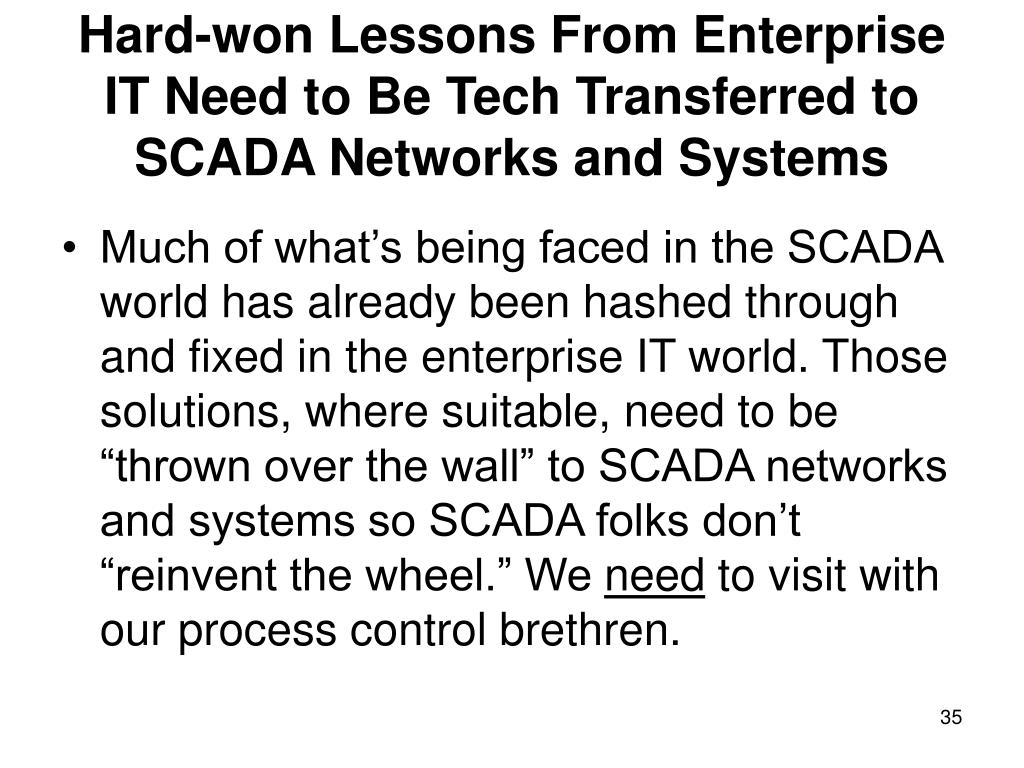
PPT SCADA Security PowerPoint Presentation, Free Download ID341575
Is SCADA Hard to Learn? The Verdict
5. It's Challenging, But Not Impossible
So, circling back to the original question: is SCADA hard to learn? The answer is a bit nuanced. Yes, it can be challenging. It requires a diverse skillset and a willingness to learn constantly. But its definitely not impossible. With the right approach, the right resources, and a healthy dose of persistence, anyone can master the basics of SCADA.
Think of it like learning a new language or a musical instrument. It takes time and effort, but the rewards are well worth it. A solid understanding of SCADA can open up a lot of career opportunities in a variety of industries. There is a growing demand for skilled SCADA professionals and a lot of great career opportunities.
The key is to break down the learning process into manageable chunks. Start with the fundamentals, focus on practical applications, and don't be afraid to ask for help. Embrace the challenge, and you'll be surprised at how much you can learn. You dont need to be a genius to learn SCADA, just dedicated and patient!
Ultimately, the difficulty of learning SCADA depends on your background, your learning style, and your goals. But with dedication and the right resources, anyone can become proficient in SCADA and contribute to the exciting world of industrial automation. So, take the plunge! You might just surprise yourself.
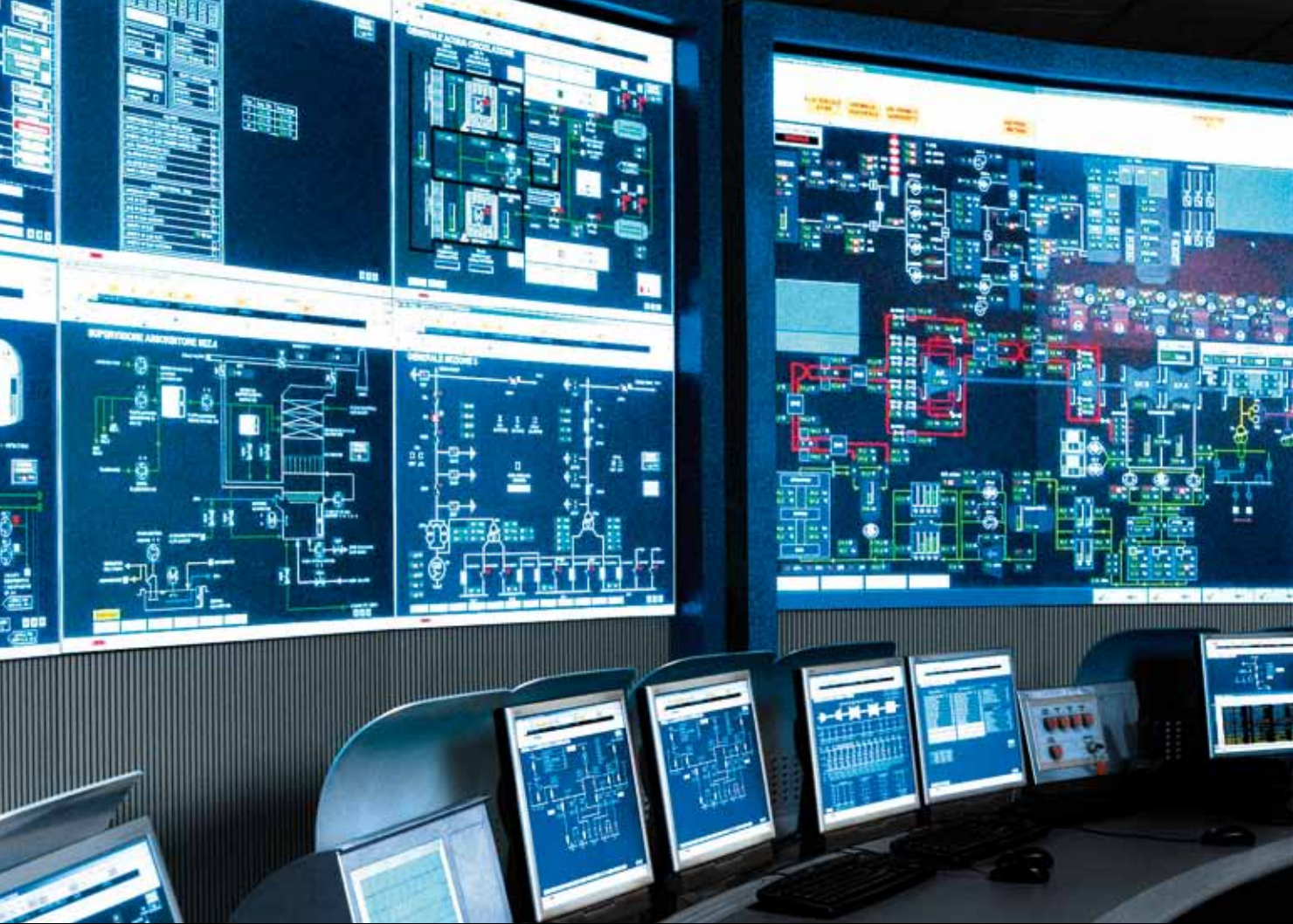
Images Of SCADA JapaneseClass.jp
FAQ
6. Your Burning Questions Answered
Q: What are the essential prerequisites for learning SCADA?A: A basic understanding of computer networking, some familiarity with electrical or mechanical systems, and an interest in automation are all helpful starting points. Don't worry if you don't have all of these; many resources can help you fill in the gaps.
Q: How long does it typically take to become proficient in SCADA?A: It varies depending on your learning style and how much time you dedicate to it. Generally, you can gain a basic understanding in a few months with consistent effort. Mastering advanced topics and specific software packages can take a year or more.
Q: What are some common career paths for SCADA professionals?A: SCADA professionals can work as control system engineers, automation specialists, SCADA system integrators, cybersecurity analysts, and more. They can find employment in industries like manufacturing, utilities, oil and gas, and transportation.